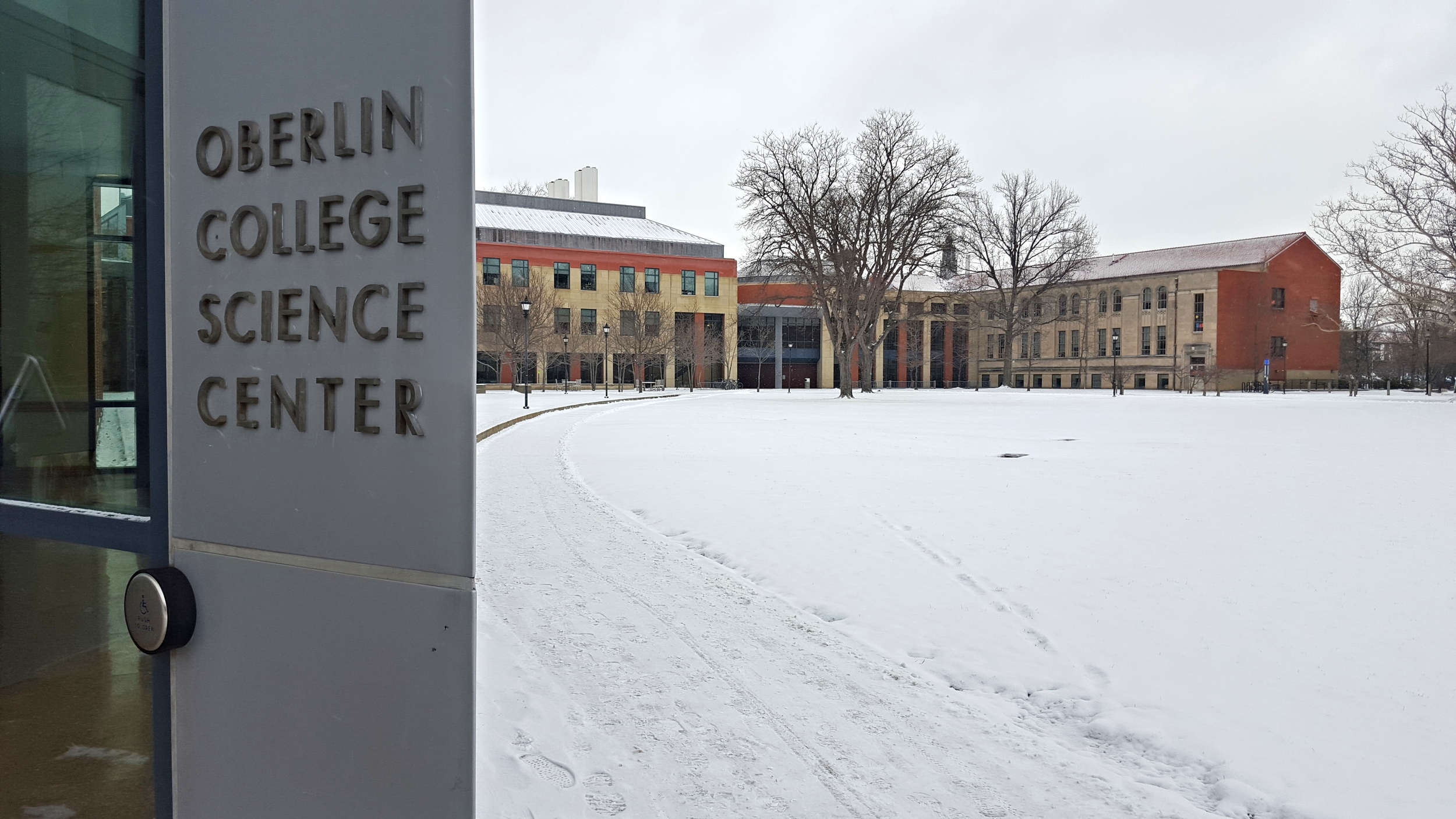It's difficult to know how to say "thank you." Rarely, I would venture, do we even understand the full impact that our experiences have on us. If we are given an opportunity to show our gratitude to those who have shaped our lives, how do we do it right? How do we put into words and actions how grateful we are? I had chance to try this past week.
After a long absence (almost 12 years!), I had the honor of returning to my alma mater to give a talk. It was wonderful to see my mentors in the Oberlin College Department of Chemistry and tell them just how invaluable their time and gentle guidance was to a young (not quite) Dr. Yeung. Having just learned earlier in the week that I would be awarded the 2016 F. W. Clarke medal by the Geochemical Society, this trip back to the proverbial "house where I grew up" took on special meaning; it was time to give thanks.
The wooden periodic table, a fixture in the Department of Chemistry, lives on.
Professor Elrod in his element, in front of the mass spectrometer that I worked on for three years.
I got to see my research mentor, Matt Elrod, and return to the lab where I first learned what a turbopump was, how to handle a gas cylinder, and how a mass flow controller works (it looks pretty much the same, home-built mass spectrometer and all). Maybe a dozen students have moved through the lab since I graduated, many to top-flight graduate programs—just like I did. If anyone has a magic touch for mentoring, it is him.
I finally thanked my analytical chemistry professor, Robert Thompson, for everything his class brought out in me. It remains the single most important class I have ever taken: I learned how to work efficiently and carefully, how to propagate uncertainty, how to plan an analysis, all while learning how to improve a chromatographic separation, no less (something without which I certainly would not have my job today). I learned about the many fields that benefit from steady hand and analytical mind.
I had a nice lunch with some current students, who mainly asked me how I found my way to geochemistry from physical chemistry. They were all very bright, inquisitive, and engaged: everything I have come to appreciate about students from an institution in the top tier of liberal arts colleges. I couldn't help thinking back to when I was on their side of the table, asking the guest speaker how they found their chosen path (while picking up a free lunch at Black River Cafe!).
It was unusually natural to speak with many of my old professors now as colleagues, too. They would tell me about the things that were capturing their interest, and they would ask me as many questions about my work as I would about theirs. We talked about undergraduate education, advising students, research funding, and even where their kids were now deciding where to start their own journeys in college.
Finney Chapel on the Oberlin campus.
Several of my mentors are now nearing retirement. The decade that had past was far too short, and I had naively assumed (hoped, rather) that my mentors would continue teaching forever. I wish they could, but in the words of Robert Frost, nothing gold can stay. I can only hope to be for my students a fraction of what these mentors have been for me.




